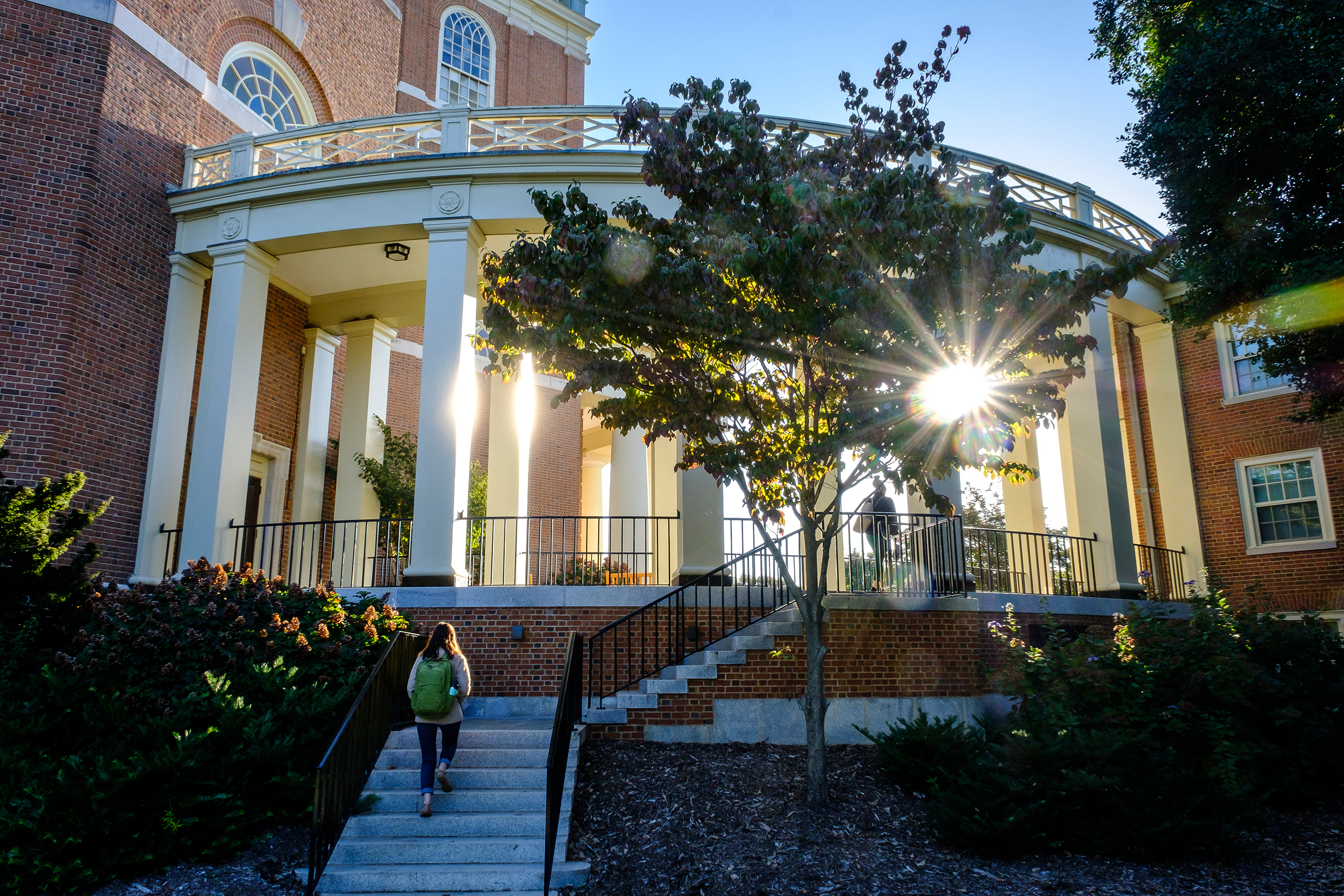Media Advisory: WFU to launch groundbreaking study of student, alumni well-being
Wake Forest University will become the first institution of higher education to systematically and comprehensively research student and alumni well-being along multiple dimensions – including social, health and career outcomes – over time.
Designed to measure well-being among students while they are on campus and then track them for several years after they graduate, the longitudinal study will create a tailored set of measures for colleges and universities to use to determine how the overall college experience affects student and alumni well-being.
Researching well-being as part of the college experience now is more important than ever. According to the American College Health Association National College Health Assessment, the top three factors negatively impacting American college students’ academic performance are stress (29%), sleep difficulties (26%), and anxiety (20%). After graduation, people face other challenges to well-being, such as workplace stress, economic pressures and work-life balance.
“How can the college experience contribute to well-being outcomes? Our research will help us answer this question and determine what efforts make a difference,” said Penny Rue, vice president for campus life at Wake Forest.
Rue and other colleagues recently outlined plans for the study at a national gathering of student affairs leaders who confirmed the need for this kind of assessment. As a result, Wake Forest and other institutions will be able to identify, prioritize and develop initiatives, policies and resources that significantly enhance well-being.
“Students, faculty and staff at colleges and universities across the country are busier than ever. Campus leaders are seeking ways to address high stress levels, mental health challenges, and fluctuating feelings of inclusion and belonging,” Rue said. “Because we care deeply about well-being, we need to measure it directly, and define a model that is sensitive to the college experience.”
In addition to determining the key measures of holistic well-being for students, the researchers will then take the next step to gather data on how college well-being transitions to career and life well-being and other post-graduation outcomes.
Plans are to develop the survey measures this year and pilot the study in 2015.
The Reynolds American Foundation has pledged more than $1 million to support the development and implementation of the new study.
“We’ve had a long-standing relationship with Wake Forest University and it’s part of our mission to support the communities where we live and work,” said Alan Caldwell, executive director of the Reynolds American Foundation.
“We are grateful for the commitment from the Reynolds American Foundation to help fund this important project, which we hope will benefit our community and become a model for others in higher education,” said Wake Forest President Nathan O. Hatch.
The Reynolds American Foundation gift signals momentum for Wake Forest’s comprehensive approach to well-being as a fundraising priority for Wake Will: The Campaign for Wake Forest. Earlier this month, the University announced a $3 million gift from Blue Cross Blue Shield of North Carolina to support Wake Forest’s well-being efforts.
About Wake Forest University
Wake Forest University combines the best traditions of a nationally renowned liberal arts college with the resources of a large research university. Founded in 1834, the school is located in Winston-Salem, N.C. The University’s graduate school of arts and sciences, divinity school, and nationally ranked schools of law, medicine and business enrich our intellectual environment. Learn more about Wake Forest University at www.wfu.edu.



